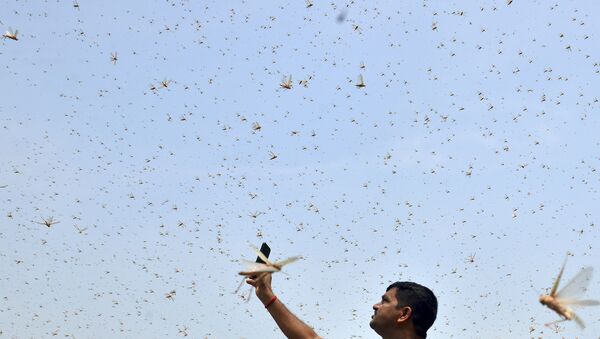Locusts have attacked large parts of Rajasthan, Gujarat, Madhya Pradesh and Uttar Pradesh in the first major incursion in over 20 years. India has deployed an airborne locust control system, fitted onto a Mi17 helicopter, to control their onslaught. Aircraft engineers from Indian Air Force have carried out the modifications, using home-grown design and components.
The helicopter has an auxiliary tank of with a 800 litre capacity which has been fitted inside to store the pesticide Malathion in an appropriate concentration. It can spray for nearly 40 minutes in an infected zone, covering an area of approximately 750 hectares in each mission.
A team of test pilots and engineers have successfully carried out ground and airborne trials of the modified helicopter and cleared it for deployment.
Indian Air Force pitches in to fight locust. Airborne Locust Control System fitted on Mi-17 helicopters.
— Abhishek Bhalla (@AbhishekBhalla7) June 30, 2020
Using all indigenous components, the atomized airborne spraying of pesticide has been successfully achieved says @IAF_MCC pic.twitter.com/hzVsRUzKif
The atomized airborne spraying is achieved in air through a configuration of nozzles mounted on both sides of the external trusses of the helicopter.
Large and aggressive swarms of crop-devouring short-horned insects have invaded several parts of Rajasthan, Punjab, Gujarat, Madhya Pradesh and now Uttar Pradesh, damaging standing crops. One-square-kilometre swarms contains up to 40 million insects and they travel fast, sometimes up to 400 kilometres per day.
According to India’s federal Agriculture Ministry, the swarms flew across the border around 30 April and are still active in several regions.
The UN Food and Agriculture Organisation (FAO) recently warned India, Pakistan and several African countries to remain on high alert for four weeks amidst reports of fresh locust breeding.




